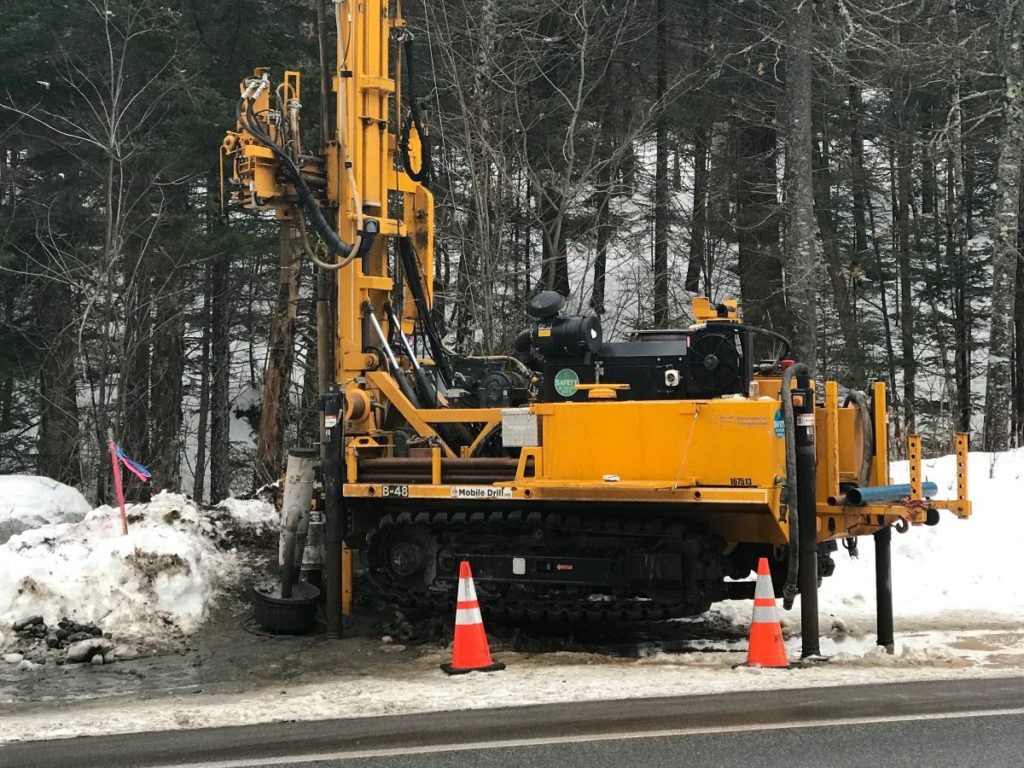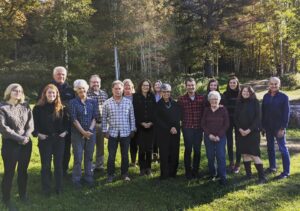In the cold depths of winter, we’ve already seen six freezing rain events and several significant snowstorms. Road salt is being heavily spread, plow trucks are out day and night, but along two Adirondack stretches of state roads, the possibilities for road salt reduction are being tested.
One pilot is in Lake George along 9N, and the other is the 16-mile stretch of State Route 86 from Lake Placid to the Whiteface Mountain Ski Area. The Route 86 pilot been designed for a study of groundwater contamination along the roadway.
The emphasis on groundwater stems from the 2018 AdkAction-sponsored study conducted by the Adirondack Watershed Institute at Paul Smiths College. The study, directed by Dan Kelting, tested over 400 private wells in the Adirondacks for salt contamination. The findings were alarming: 55% of wells downslope from state roads were contaminated with sodium, chloride, or both, above the recommended drinking water levels set by the EPA.
AdkAction, along with partners, urged NYS DOT to install several test wells to monitor changes in the amount of road salt in the groundwater along the pilot routes. DOT agreed, and in the last two months of 2018, four wells were installed. Despite our local water quality monitoring experts offering to install monitoring equipment in the wells to keep an eye on levels, DOT and DEC opted to work with US Geological Survey (USGS) to monitor the water quality in the test wells. Unfortunately, the government shutdown prevented any data collection from the test wells. This is a huge missed opportunity since little is known about how changes in road salting application practices and rates impact groundwater contamination.
AdkAction has requested that DOT and DEC give local water monitoring experts access to the test wells. In the meantime, best practices have been put in place along the pilot area. They include: the application of a salt slurry to roads in advance of storms to reduce ice formation; the use of salt mixtures or salt with abrasives rather than the 100% salt traditionally used on state highways; reduced speed limits; and the use of flexible-edged plows to more effectively remove ice and snow from roads than the traditional rigid plow blades. This reduced use of salt is a significant economic factor in a year where some communities experienced more than a 50% increase in the cost of salt for the 2018-19 winter season. The salt reduction pilots are estimated to save NYS DOT roughly $500,000 this year.





